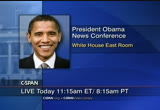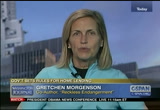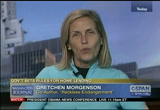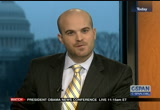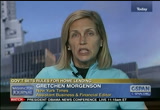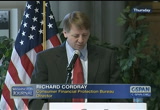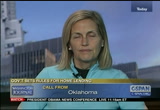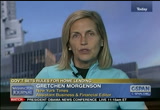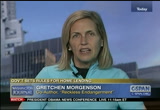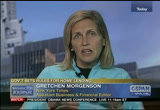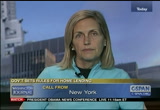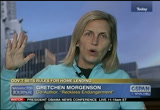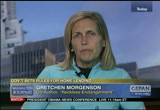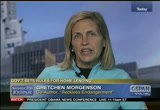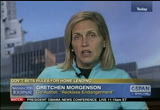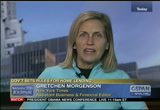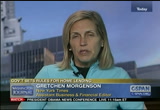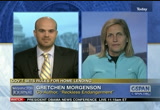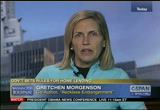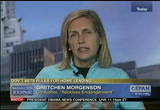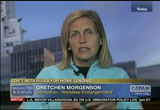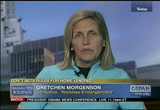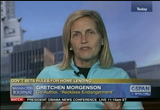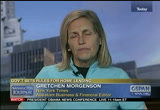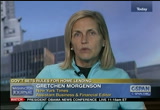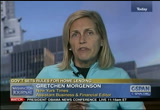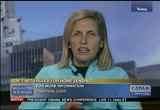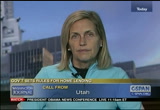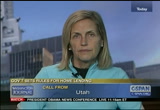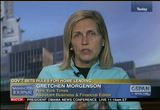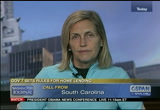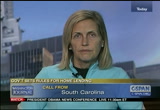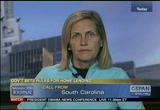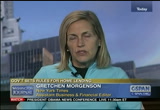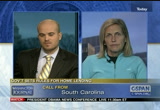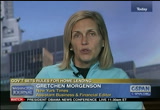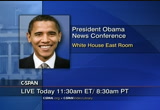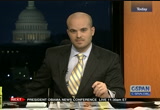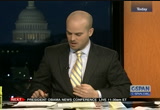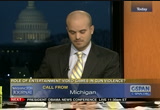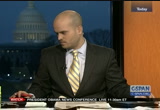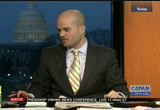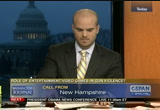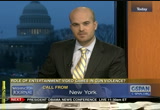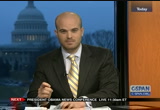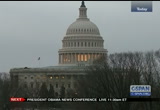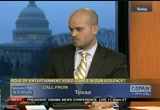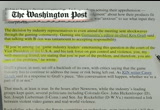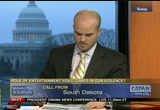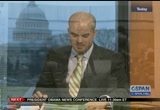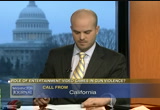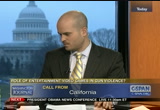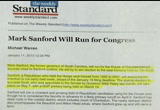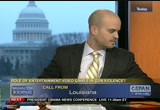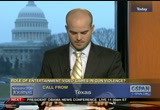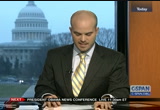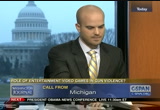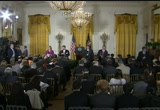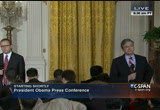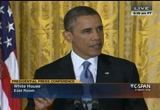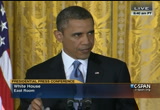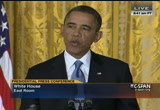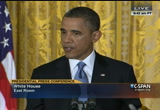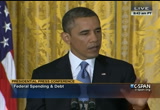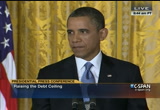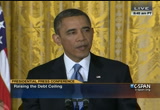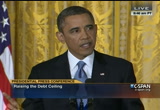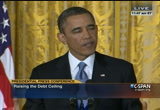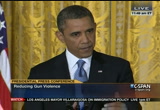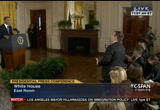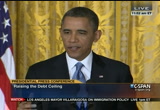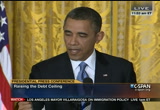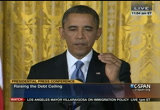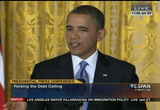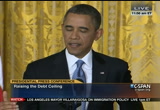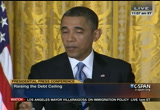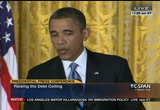tv Politics Public Policy Today CSPAN January 14, 2013 10:00am-12:00pm EST
10:00 am
is going to do something bad with what is. what is a legal with product. thanks for breaking down the atf for us. that's our show. we will see you here tomorrow morning at 7:00. h[captioning performed by national captioning institute] [captions copyright national cable satellite corp. 2013] >> president obama will take
10:01 am
coming up at 1:00, los angeles mayor discusses the policy. after his remarks he will take questions from the audience. the u.s. house gavels in today at 2:00 p.m. eastern. on the agenda for the week, hurricane santee relief. they are considering amendments to that bill. coming up a week from today, at the public inauguration ceremony for president obama's second term. the live coverage including the swearing in, luncheon, and inaugural parade. we'll also take your phone calls and comments. rehearsals were under way for
10:06 am
>> also on c-span radio and online. we will take to this for discussion on venezuela. actually, we will have the president. he will give his final news conference of his first term. we will have that again starting at 11:15 eastern. right now a discussion on the council of the americas and venezuela. >> aegis of the director of the consumer financial bureau. for more on this subject we turn to gretchen morgenson. take us through some of the highlights of these new roles. >> basically, what these are designed to do is to prevent the
10:07 am
10:08 am
it is to make sure that the borrower will have the ability to repay the mortgage over time. that is probably the leading characteristic. what were some of the practices that allowed banks to give out the sky and the mortgages? >> there were many mortgages for or written without any consideration for the borrowers. as we have known and learned, many were made with complete disregard for checking on the borrower. there is no real concern. the banks were selling these loans down the line it to investors.
10:09 am
they were being packaged and cut into mortgage securities. the bank that was making the loan did not care whether the loan would perform over time. these rules are designed to stop that kind of practice. some had characteristics such as you would not have to pay any principled stand on overtime. you could choose to pay only the interest or choose to pay only a fraction of the interest that was due each month. those were some of the loans that appeared to be very affordable. in reality they were extremely costly. the phone lines are open. we are talking with the
10:10 am
financial editor at the huge -- new york times. well i have you, talk about when these new rules go into effect? >> i think over the next year they're supposed to go into effect. i am not sure i think that they want them to go into effect pretty soon. they have been hammering them out for months. this is the first big initiative by the bureau.
10:11 am
>> the new york time notes that this is progress. it notes that the roles will be supplemented by regulations and other agencies. kenny talk about what they're iting to do decks' cries would be a mortgage characterized as safe or sound. there is a qualified mortgage. there have been discussions of that.
10:12 am
would it be less? they are hammering out the various aspects of these loans that they would consider qualified. meaning say for sound. the idea is, if the loans that a bank makes do not have those characteristics, the banks would have to keep part of that loan. that would eliminate this idea of turning out loans with no ability to repay them. this idea of having banks required to hold on to a portion of the loan that did not qualify under these rules is designed to prevent that loading of garbage loans. host: so, they have some skin in the game? guest: correct.
10:13 am
caller: talking about where these new rules came from, with these new types of loans being created. [video clip] >> they cannot contain certain features that harm consumers with excessive points and fees, the up-front costs imposed by the bar were. they cannot be risky loans where the principal increases rather than repaying the loan. they cannot be loans in the plot -- that placed a large financial burden on the bar were. monthly deaths of the consumer, such as taxes and insurance, generally cannot add up to more than 43% of their monthly gross income.
10:14 am
no standard is perfect, but the standard here provides a clear line with a measure of protection to borrowers that have increased certainty in the mortgage market. host: i want to bring in a few callers on this subject for you. oklahoma city, oklahoma, democratic line. good morning, vernon. caller: i am tickled to death that the government is setting the rules for the financial industry when it comes to the home market. people worked all their lives to provide a home and held for ways to get it paid off before they retire. this is the one area that the
10:15 am
government needs to regulate and regulate closely and i am glad we're finally doing that. now, of course, we have drawn a line in the sand that we can hopefully reclaim. can we hope that it will ever change back to what we thought we had been through? guest: an excellent question. another one to add to that is -- will the regulators have the appetite to regulate this closely? making sure that banks are abiding by these rules? we had a system going back to their years in a crisis where regulators did not feel that regulation was that important. the federal reserve felt like the monetary policy, setting up interest rates was the key focus that they had. they were not concerned over consumer borrowing and consumer predatory lending. my hope is not only that, as you point out, these rules remain in effect and will not be watered down by any sort of congressional intervention, but also that the regulators who are charged with enforcing these rules will be very
10:16 am
vigilant and make sure that they are enforced. host: the caller brings out that these rules are finally here. can you talk about the history of the rules that were in place on these mortgage loans a few years ago? when these issues were starting to bubble up? guest: there were many applications you had to fill out, requirements that the bank had to give you truth in lending disclosures. it really is still a very complex deal to buy a mortgage.
10:17 am
it requires signing hundreds of pages of documents, understanding many intricate close to the financing temple. many borrowers did not understand what they were signing. the people that were underwriting the loans did not have any interest in explaining them to them. these loans where the principal actually grew overtime instead of coming down, i spoke of those loans earlier, where you had a choice to pay only the interest. for these are very complex structures. the only real regulation we had in place was called truth in lending, which told you what you
10:18 am
were getting into. however, these affordable mortgages, they were designed to help lower income, people who had never had a home before get into a home. as you recall, home prices have skyrocketed. affordability was key and crucial. they designed mortgages that were very different from the old, conservative, 30 year fixed-rate mortgage that we all knew and were familiar with. again, some of these loans where you had a very low interest rate to begin with and after several years, it would explode higher. i think the government is aiming to eliminate those. host: this question from twitter -- how much of the responsibility falls on the bar were? how -- to what degree did the lender commit fraud? guest: this question is on the minds of everyone. there is enough blame for
10:19 am
everyone. borrowers were certainly involved in the crisis, overreaching. do you remember the mania for real estate? you could not go to a barbecue without people talking about how much their house had increased in value. naturally, people wanted to get on board that runaway train. if it meant taking on a loan that they did not understand or in some cases taking on a loan in which they lied about their income, many borrowers were willing to do that. but my feeling is that it was the responsibility of the banks, first and foremost, to make sure the loan could be repaid. a's still goes on today, piece of paper that every bar were signs that allows the banks to check on their income with the irs. every bank required every borrower to sign that, but no banks, or very few, went to the trouble on checking done in come with the irs. this is a case where the bank had the opportunity to check on the income as stated and they
10:20 am
did not. very few went to the trouble of checking on in come with the irs. the banks had an opportunity to check on the income and they didn't. i think the banks were more responsible for the mess. host: david from long island, new york. caller: good morning. i refinanced my house about eight years ago. i borrowed half the value of my house. the economy went south on us.
10:21 am
now the banks are sending us these low interest rates. i go back to refinance the house or remorse reached the house at 6.75%. bank tells me i do not make enough income or income to debt ratio for the house. i do make enough to pay the 6.75%. if the given the lower rate, i would be saving $1,000 a month. what can be done about that? guest: there are many, many borrowers who are having trouble refinancing their home loans. i hear from a lot of them. it is a real problem. we had a pendulum that had swung out into the wild west or anybody that was breathing got a mortgage. now it has swung the other way.
10:22 am
the banks are being ultra cautious and requiring owners disclosures and very conservative income levels. i think there is an element of your story that questions -- does the bank wanted about the 6.75% interest that you're paying on your mortgage. that is a rich interest level in this environment. you have to wonder if the bank isn't holding on to your loan to maintain that high level of interest. i wonder if the might be worth your while to try to go to another bank and not refinance with the same company. it has become a much more difficult circumstances to get a mortgage because the banks
10:23 am
are still recovering from all the bad loans that day made during the real estate mania. host: this idea of the debt to income ratio. that was something richard cordray talked-about. this is from american hero joe. explain this issue for us. guest: this goes to the heart of the ability to repay the loan. we do not want people taking on
10:24 am
loans that they cannot afford to repay. 43% is the outside level. if your mortgage debt sure other debt -- car loans, credit cards -- exceed 43% of your growth or pre-tax income, then that is too much. that is a loan that is becoming too onerous and you might have trouble repaying. anything below 43% is acceptable as a qualified mortgage. anything above that starts to get into the territory of you
10:25 am
are not having enough money left over from all of your financial obligations to live a reasonable life. host: an issue that one of your co-workers wrote about in a column from friday. "clouds seen in regulators' crystal balls for banks" is the title. host: talk about the balance the consumer financial protection root beer past to work with in insuring banks will still be willing to lend money under these new rules. guest: it is always a balance. i was describing about the pendulum what we want to eliminate the outside edges of
10:26 am
that pendulum when we're swinging too conservatively or to radically. banks are an integral part of the economy. they finance new job growth and new companies and people being able to buy a home, which is typically the largest single investment they will ever make. banks are crucial to this entire process. we need them to be there to help consumers and businesses finance their operations. the balancing act is not being too strict so that they will draw in and not land but not being too lax. that is a fine line. we shall we shallthe cfpb has
10:27 am
achieve that with these rules. financial institutions will complain about any regulation because they did not want to be subject to kinds of rules that instruct them in how to do their business. when you read the complaints from the financial industry, i would say we have to take some of those with a grain of salt. host: gretchen morgenson is the "the new york times" assistant business and financial editor. she was co-author of "reckless endangerment.' guest: who basically were the interco parties in creating the crisis decades later. host: don is next from clifton, virginia. caller: a good time to segue the early seeds being sewn. things like the community
10:28 am
reinvestment act and barack obama's attorneys forced banks to make it substandard loans. if the regulators had left the banks alone, the government do- gooders, we wouldn't have had all these problems. teargassed is calling for more government involvement and i think that is wrong. host: a chance to respond. guest: when you have a crisis that was this devastating and harmed this many people, i don't think the answer is to go about allowing these institutions to continue down that same path. i have not suggested are called for greater regulations of financial institutions.
10:29 am
i have believe that we need to have regulators who have an appetite to regulate. we did not have that during the 2000's and the 1990's. there was a sense that deregulation was the answer and that government was the problem. this led to a free-for-all and a wild west in lending that created these problems. i agree with your caller in that the government did set out to promote home ownership. that promotion of home ownership which was instituted with vigor under president clinton in 1995 was a joining of hands between the public and private sector to promote the idea that more people should owned their own home.
10:30 am
this idea was a win-win for everyone. a promotion of an idea regardless of how much sense it made and regardless of the rationale. the government encourage business to really relax their standards. the government relaxed its standards in order to promote this role of greater home ownership. it was the road to hell paved with good intentions. that is an exact characteristic of what happened.
10:31 am
the push for home ownership did create some of these loans that wound up luring some of the most vulnerable people into mortgages that they cannot afford to repay. host: a question for you from twitter, arvind. guest: i think the small community banks came out of the crisis with very few bruises and a few black eyes. the large mortgage originators like countrywide and washington mutual, these were companies that were responsible for the lion's share of the mess. if you were to go to your small community banker and ask for their business model and take a
10:32 am
look at what their losses were, i think you would find they survive this pretty well intact. they were not a force at all for evil in this mess. now they are subject to greater regulation because they are in the industry that helped create the problem. they did not participate on the upside and did not participate in some of the most egregious lending examples, they are being forced to pay the price with greater regulation. host: how big of a market share did the small banks have compared to some of the big boys? guest: very small. we are talking about your local
10:33 am
banker. there are two kinds of sets of banks. there are community banks and the larger banks and the mortgage underwriters that were feeding this frenzy. host: anthony is next from baltimore. caller: good morning. i have an important question. i did it all right with a conventional mortgage, fha. in 2008, the bottom fell out, i got caught and went under water. now i can i get a refinance and the house is worth nothing. is there anything in the new rules for people like me to get out of this mess that we did not create? what is on the table for us? thank you. guest: these are rules for mortgages to be made going
10:34 am
forward. there is nothing in discussion about people in your circumstance, having taken out a mortgage during the mania, paying a price for your home which it is no longer worth and having the loan still out standing and having the house worth less than the loan. many people are in this circumstance. there are discussions about principle forgiveness. these are nowhere near being decided. there isn't anything for you in the new rules.
10:35 am
they are about what to do going forward when you write a mortgage loan. host: there is an announcement that the banks completed an $8.5 billion settlement with regulators. take us through that case. guest: that settlement was around -- it was designed to remedy some of the egregious for closure of practices that had harmed quite a few borrowers. these were the fraudulent filings that were made with bankruptcy courts across the country when borrowers or filing for bankruptcy. lenders work rubber-stamp think these things without examining them.
10:36 am
when you're going through a bankruptcy process, the law requires banks and their representatives follow strict rules. they were not being followed. we had people forging signatures and filing fraudulent filings with the court. it was a disaster. there was an avalanche of foreclosures. the rule of law does not usually get thrown out the window just because there's a tremendous amount of work to be done. it was an egregious series of fraudulent filings. the banks had agreed last week to pay $8.5 billion to borrowers to remedy those situations. the settlement is so unclear. nobody has told anyone about who is going to get the money.
10:37 am
if you had a foreclosure, you're in the group of people who are supposed to have been remedied. it is unclear how they are going to divide the $8.5 billion. did it your home get taken away from you because of these fraudulent filings? if so, what did you get? many, many questions remain. it is too soon to say whether it is going to be effective or have any real impact on people who were going through foreclosures in those two years. 4.4 million people are in that category of having been in some portion of the foreclosure machined during 2009, 2010.
10:38 am
not everyone of them was subjected to some of this behavior. 4.4 million people is the aggregate number of people. you have to find out those who were harmed -- you have to find out how to reach those who were harmed. host: this is your headline back on january 5. guest: it is another settlement, very similar to the 50 state supplement that was struck last year. the government doesn't do the investigation to see how pervasive the problems were and how bad the behaviors were.
10:39 am
how can you assign blame and remedies to people if you do not know who was harmed and by how much? "let's get this behind us and throw money at this problem but we don't know the extent of the problem and we do not know how to focus the remedy on the right people." host: karen is next from utah. good morning . caller: thank you so much. i am getting a good education with the housing market. i cannot help but think other people out there that have had a similar situation. i have a home and got a loan and then the economy goes bad, gas goes up, we cannot make their house payment because all our money is going in the gas tank. then the food market goes up.
10:40 am
we are making the house payment. we're at the food bank. my husband gets unemployed. i have refinanced twice so far. $8,000 in settlement costs. then i do would began. the government came up with a program where did not have to pay that. i got a lower payment and we are going to make it. it's like nobody is talking about the elephant in the living room. all our money is going into the gas tank. guest: cost of living are going up. the cpi is not going up. anybody who goes to the gas station or supermarket sees that the costs are creeping up. that makes it more difficult to make ends meet.
10:41 am
i am sympathetic to your situation. it sounds like you now can afford your mortgage. it goes back to the catch 22 which so many borrowers are in. they are either under water or lost their jobs and did not have the income. they cannot refinance. they are stuck paying a higher mortgage. the fed has brought interest rates to near zero to encourage people to refinance. so many people cannot get a new loan. the zero interest rate policy is of no help to them. host: we have a question on
10:42 am
twitter from sea dog. guest: again, it has not been made clear what the terms of the settlement are, what kinds of circumstances will be those that get the remedy. if there were some egregious examples of a bank trying to foreclose when the person was current on their payments, there is a possibility that the
10:43 am
borrower could get some money. it seems unlikely if they have walked away from the house that they would be part of the salomon. host: frank from lexington, south carolina, good morning. caller: good morning. i appreciate your comments. a lot of what you're saying is true. i thought i would bring some additional reality. i have a son who has been in
10:44 am
business for himself and he is done very well. he has applied for a mortgage. we have gone through three mortgage brokers who cannot present a package because they do not know what the rules are or they are examined by the underwriting departments of these so-called mortgage brokerage companies. they are so afraid to make a mistake. they cannot utilize something called common sense. as far as the thinking the banks are the bad guys and what has transpired over the last decade, i think probably president clinton won the sent that letter to relax the standards so more people could realize the american dream of
10:45 am
owning their own home and he asked those bankers to relax their standards. the banks had to get creative and create packages so people could qualify for a loan. and then boom, the reselling of all these mortgages came to a screeching halt after about a four purchase turnover rate. government is not the answer. they are admitting they are trying to correct the mistakes of the past by putting pressure on banks 10, 12 years ago as far as the placing pressure on banks to make loans more
10:46 am
qualified. host: let's give gretchen morgenson a chance to respond. guest: i agree with the push for home ownership. it was the national partners in home ownership. it was a plan to push for this. the banks make a tremendous amount of money on these mortgages over the years. they weren't doing it just to respond to government pressure. they were immensely profitable, incredible amounts of money were made making these loans in junk fees and interest rates. until the music stopped, they were extremely profitable to banks. it wasn't just that day were being charitable. it was a goal for them to increase their earnings. the reselling of the mortgages was so powerfully profitable on wall street.
10:47 am
it is the joining of the hands between the government and private sector to push for home ownership that is the starting point for this crisis. host: do you think the banks bear some responsibility? caller: it would be silly to say not. they did have a hand in the transactions. to place all faults on the part of banks under pressure by liberal policy brought forth by government in order to have people "enjoy the american way of life" i think is a mistake. that government could recreate the situation by having the pendulum swing the other way,
10:48 am
we're seeing over qualifications. it is a big problem. one year my son has been paying interest on a construction loan. a mortgage broker cannot present a package properly, particularly under the usda program. it has been an absolute nightmare. host: frank from a south carolina. brian from madison, ohio, good morning. caller: good morning. my wife is an officer. this problem did not exist during the clinton administration. as soon as bush let everything go. my wife is not allowed to say anything by law. these mortgages were being approved when she knew it was
10:49 am
no way that these people could afford these mortgages. it was ridiculous. the balloon payment -- those people that should be involved in being able to see whether somebody is qualified or not. guest: absolutely true. the fact that your wife was overridden was one factor contributing to the crisis. people tried to restore hands and say this is not right. there were so profitable. there was this push. they were run over by the
10:50 am
opposition. i sympathize with her circumstance. >> in 45 minutes we will be light at the white house where president obama is holding the last news conference of his term. they're looking to raise the debt ceiling of which stands at $16.40 trillion. he may also talk about the war in afghanistan. you can watch your remarks frigid his remarks live here on c-span. in the meantime, some of the headlines in this morning's "washington journal." >> been morning to you. i want to start with a story.
10:51 am
10:52 am
10:53 am
10:54 am
we know the norway shooter would use that as target practice. you say let's keep children safe, protect our freedom -- let's put these issues on the table and have a good, solid conversation about it. host: we are taking your calls this morning to get your thoughts on this issue. we will start with queens, new york, independent line. caller: i believe that we need to look at video games, the mental health aspect, but the real problem is that osama bin laden can buy a gun by shaving his beard, no background check. if we love our children we have to get on board. we do not know if someone has a mental health problem until they use a gun? host: how should these industries change what they're doing? caller: it is age appropriate at this point.
10:55 am
we are missing the point, like that blogger just wrote, other countries have these videogames, but they do not have semi-automatic weapons with all of these bullets. we will not know if they have those concerns. it is focused on the amount of bullets. host: from cnn this weekend, a column that might agree with some of the comments the caller was just making. host: we will bring in ken, from albion, michigan, on the
10:56 am
10:57 am
upcoming movie that is extremely violent, even though the content you are watching has no violence in it. you are bombarded during the commercials. host: you are saying that you cannot avoid the violence even when you try? caller: correct. host: what needs to be done? ratings on commercials? caller: i think that they need to curb that as far as it is allowed to be shown during certain tv show programs.
10:58 am
host: i want to bounce this comment from the mercurial entertainment association in the story from "the washington times." host: you disagree? you think it needs to be more regulation? caller " no, not in terms of what is being sold -- caller: no, not in terms of what is being sold. host: how do you keep it from happening, then? caller: that is what is on the table. host: some of those might come
10:59 am
up this week when joe biden unveils the recommendations that his group is making. jim, good morning. caller: i have been listening to the commentary about violent video games. i guess it is cause and effect, caused being behind the violent action, the violent media. i do not simply agree with that. i think that the biggest issue is mental illness. really, the media in this instance is being used as a scapegoat. host: so, what needs to be done?
11:00 am
put more money into the mental health system? host: it targeted way. but the irs national -- the fbi has national bank of printing database. the real issue is accountability. holding those the purchase a weapon and uncountable, not only for their own use, but by those that may steal them. this is a commentary this weekend.
11:01 am
host: so, we are getting your thoughts this morning. what are the other articles this morning in the arts section of "the new york times"? this is the front page. the picture next to this show of the golden globe winners from last night. the issue of extreme violence on screens has become a thicket that programmers cannot avoid. "i do not think that there is anyone on this planet whose life has not been changed or affected by the recent course of events. nothing that is on the air is inappropriate.
11:02 am
the network justifies the level of carnage by making sure the bad guys are brought to justice. there's a shot -- "criminal lines" is an adult show -- criminal minds" is an adult show. steve, good morning. caller: in my judgment, the issue of violence and cause and effect relative to children or adult behavior has called for the recommendation from joe biden where he recommends that there be more research on this issue. i highly endorsed a good deal of independent base research relative to how children get entertainment.
11:03 am
videos, teenagers, adults. the shame behind our use of such incredible tools is that relative to teaching children, teenagers as well as adults, we need to give them problem- solving skills relative to real-life and how to develop and expand their personality. host: steve, thank you for the call this morning from new jersey. this twitter comment -- violent video games? what happened to baseball? another -- media glamorizes the violence. these games are played all over the world.
11:04 am
they are just games. phone lines are open. walter, independent line. good morning. your thoughts on violence, the movies, and video games? caller: i am 51 and i have played video games since they came out. a long time ago they used to complain about a game called dungeons and dragons, a role- playing game that they said lead to violence and kids killing people, things like that. it is not. you hear about football players going crazy, things like that. it is just like that. there is something that is wrong with a person that extends through family or whatever. we have got to start looking at getting the family back together again and putting more discipline on the children. the games that my children play, i do not have a problem with them.
11:05 am
call of duty, other games like that. i do not believe it is based on the video games. i believe is on the family. host: thank you for the call this morning. john locke, an authority who has written extensively on the connection between guns and crimes, says that there are too many variables involved to tie mass shootings to video games. host: i want to bring you a little bit about joe biden talking about gun violence with the video game industry.
11:06 am
[video clip] >> obviously, involved with social education, and you and the video game industry. i come to this meeting with no judgment. you all know the judgments that others have made. i think that we had a very productive meeting yesterday with the broadcast industry. they had some very constructive ideas as to how the could help. host: that was vice president joe biden talking. you can check out his entire appearance on our website, c- span.org. a programming note on this subject today. at 9:00, the johns hopkins university is holding a summit on reducing gun violence in america, including martin
11:07 am
o'malley, the governor of maryland, and michael bloomberg, mayor of new york city, co-chair of the mayor's against illegal guns coalition. that is at 9:00 a.m. on c-span 2. now we are going to the democratic line, murray, from brooklyn, n.y. caller: good morning. the last two comments that you read and the vice-president _ my point. we need to look at individual -- underscore my point. we need to look at individual responsibility and gun violence. people who feel they have the right to own guns or published
11:08 am
media to -- which shows violence have a firm foundation, but the but -- but the foundation that they cannot stand on is that we must consume this type of material. individual responsibility means do not buy it. if we do not buy it, do not patronize it, it goes out of business. it does not come to a matter of the right to have certain types of media. if we as a consumer do not buy, do not consume, do not patronize this type of media, these type of outlets will of course either have to take their business in another direction or go out of business. host: you are saying that this needs to be a grassroots sort of thing? a boycott of violent media? caller: yes, definitely. not even so much formalized, but people need to take personal responsibility. i have a child. i cannot have pornography in my house, whether i like it or not.
11:09 am
there is a lot of nonsense about how to protect children, but protecting children means in your personal life, when you turn on the tv, turn it off. if there is nothing but violence on television, do not want to cut -- to not watch television. host: right now we want to bring in a staff writer with "roll call." he has a preview of what is coming up this week on capitol hill. caller: good to be with you. host: what is on tap this week for congress? just the house is in this week,
11:10 am
correct? caller: yes, and it is an abbreviated work week. house republicans will be having their annual news report -- will be having their annual retreat. the house will be trying to find a way forward. if the whole package had gone through, $51 billion in relief for victims of serb -- super storm sandy, with reconstruction efforts in the northeast. as you might remember, right before the last congress ended, there was a bit of a dispute among house leadership that has been reported over whether or not to bring this senate passed a bill in the last congress to the floor. obviously, the decision was made to not do that, drawing the ire of governor chris christie in new jersey, andrew cuomo in new york, and others, as well as lawmakers in both parties from the affected states.
11:11 am
what they are trying to do now is figure out how to move forward on that. how those lawmakers, as far as they are concerned, make amends for what they view as a mistake. host: the senate is not coming in until next week, but there is a lot talk about nominations on going. this is the headline from "the washington post." "colin powell defends chuck hegel's qualifications to be the next defense secretary." what did we find out on the sunday shows? caller: that things done not all clear. we have a story that we've posted yesterday, bob corker is
11:12 am
now the ranking member. this will steer the confirmation battles from senator kerrey. shut hegel served on the foreign relations committee when he was a senator. if -- chuck hegel sir run the foreign relations committee when he was a senator. they said they had formal studies to do on his record. there seems to be a lot of people from both parties, but primarily republicans, who are
11:13 am
expressing skepticism. what remains to be seen is whether or not they will allow the nomination to go through, even if they oppose it. this would require the democrats to come up with 60 votes. host: the piece from "the new york times" this morning is that hegel will meet with chuck schumer. the headline says that it could be a crucial moment to advance the nomination. he is expected to press him on issues. schumer will be the first to meet with hegel since the nomination last week. who else is the heat set to meet with this week? -- who else is he set to meet with this week?
11:14 am
caller: he has already started to make the rounds on the telephones. there has been some reporting out there on where he is going. he will have to meet in the days and weeks ahead in person and not over the telephone with everyone on the armed services committee, that is the committee that will be overseeing the nomination. he will have to cast a wide net. chuck schumer and some of the other jewish democrats will be high on the list of people that needs to speak with. but the first challenge for renomination is always to get the nomination out of committee. you should expect to see, if there are any wavering democrats on the committee expressing
11:15 am
skepticism, those will be important. the other one to meet with would be the other senator from new york, senator gillibrand, who is in fact on the armed services committee, i believe. those are some of the first steps in the practice, to make sure that he has as many good graces with members of the committee as there possibly could be. host: niels lesniewski, thank you so much for giving us a preview of the upcoming week on capitol hill. caller: thank you. host: we are continuing this subject of gun violence in the media, movies and television, getting your thoughts for the next 25 minutes or so here on "washington journal." corpus christi, arthur, texas. your thoughts on the responsibility of those
11:16 am
industries to respond to the mass shooting in new town? caller: i do not think a lot can be done. as far as industry is concerned. people pretty well get what they want. as far as children's exposure, you know, that has to start in the home. my mother was an elementary school counselor for 33 years. people talk about how kids have problems learning and all of that stuff. the parents want them used as an example. parents basically want the schools to raise the kids and it does not work. kids need a good, you know, stable home to grow up in so that they can learn and be taught different values, good
11:17 am
values. as far as this gun business, you know, guns are not going to go away. we have always had guns. if another shooting happened tomorrow, this is off topic, but concerning these past shootings, the most disturbing thing that i can find about them is that they are done by young people. some older mentally ill man, like charles whitman, but these are kids who are doing these shootings. they are totally removed from reality. host: that was corpus christi, texas, this morning. a few more comments from twitter --
11:18 am
comments from facebook -- host: we are taking your comments on all of our social media site this morning. vice-president biden met on friday with top video game publishers. the publishers included electronic arts, activation, and lizard. this was to discuss ways to curb gun violence in the united states. this story notes --
11:19 am
11:20 am
i have been -- host: go-ahead. -- hello, my name is jesse. i have been -- host: go ahead. caller: in the 1960's, 1980's, g.i. joe, violence has been around. it is more of the guns. the guns that were not able to be possessed of back then are able to be possessed now. some of it is younger people. i think that mental issues of the things that need to be worked on, not so much violent video games. i cannot imagine that these kids suddenly think that violence is right. it is the about -- the availability of guns and lack of mental care.
11:21 am
if that could be solved, the problem would be a lot less. host: more from "the new york times" and that arts section story. this is a quote from the head of fx, and he stressed a distinction between what he called third person entertainment and first-person entertainment. the former is a tacit viewing --
11:22 am
host: continuing on that subject, jerry, south dakota. caller: i have a 22-year-old son who is a product of the last generation of schooling. we took away scorekeeping, recess, put them on ritalin, taking away their male role models. cowboys, loggers, g.i. joe. they have been at the emasculated, this last generation. the last place where good role models are found are these the of games and movies. rimbaud, john wayne, those were
11:23 am
all good guys. using guns for the right purposes, to protect children. they are all republicans as well, they were easy targets for the left. we took away the role models for the boys. we stopped keeping score. how are we going to teach the next generation of men to defend america pop -- defend america properly? the military is probably a place where equal opportunity employment, minorities and everything, is at a premium. host: a few other stories on this subject, this is from "the new york times." "a new town after mass shooting."
11:24 am
11:25 am
i think that there is a moral consequence that. you do not need to eat meat to live. this massive extermination of the other species plays a part. host: what about your thoughts on the responsibility of those in film and television? caller: they are producing this stuff, but freedom of expression is one of our rights in this country and as a parent's, you have to determine whether or not your children need to rate them and distribute them according to -- i just do not think that it is as important as this disregard for life. we have to have respect for each other. when we kill animals, there is a third great extinction that
11:26 am
11:27 am
host: apparently not so much these days, with him planning to run again. also want to point out this story from "the washington post." "u.s. military fighter jets provided back up to a failed french hostage rescue mission, the white house's knowledge sunday in a rare public acknowledgement of american combat operations in the horn of africa."
11:28 am
host: we have a few minutes left on this subject of entertainment and video game violence, their role and responsibility in this ongoing national debate. mike, louisiana, on the independent line, good morning. caller: good morning. i just wanted to say that i play these types of games. i know a lot of people who do. none of us are violent people at all. pretty much all of the people who are doing this stuff, like the guy in newtown, they'll have mental problems, you know?
11:29 am
before there were these types of games or any kind of entertainment, really, there were good people back then. i do not think that these games or videos or anything like that has anything to do with what we're talking about. host: mike this morning, mentioning mental health. here is the story from "the baltimore sun." "begun database lacking in fell -- the gun database lacks info."
11:30 am
host: that story appears in today's "the baltimore sun." john, texas, democratic line. good morning. caller: good morning. they should ban violent games. the kids that may be lonely, they may be in a broken home, they take it upon the kids, they pacify them with games to keep it busy. if a child has mental problems, that may cause them to feel stronger and violent.
11:31 am
host: john, how do you ban violent games? how do you judge what is a violent games -- what is a violent game that needs to be banned? what is ok? caller code games with a lot of killing in them. these kids with mental problems, they get these heroes as heroes. in order to make them feel stronger and more powerful, they want to follow that act. it is a mental problem that will cause them to do that. host: that is john from texas this morning. this note, the chairman of the motion picture association of america, releasing a statement last week amidst the discussion at the white house. he said "what we do not want to
11:32 am
11:33 am
obey your muslim father. lockup the guns. host: what can the movie industry and video game industry, what role do you see them playing? do their need to be new restrictions on them? caller: yes, some of these children watch this stuff on television. host: thank you for calling in. that will do it for the first segment of "the washington journal." >> reporters getting ready to hear from president obama during the last news conference of his first term. gun-control in the continuing negotiation over federal spending is expected to beat in the topics when president obama takes the podium. tomorrow the president expected to receive a report from joe
11:34 am
biden leading the white house task force on ways to reduce gun violence. mike thompson has been leading the task force also appointed by nancy pelosi. you can watch that on our website at c-span.org. again, just waiting for the president who will be taking the podium shortly, expected shortly for the last press conference of his first term.
11:35 am
11:36 am
second term beginning soon. we will have live coverage starting at 7:00 eastern, including the president and vice-president swearing in on the west side of the capital at noon. that is a two minute warning letting us know the president is expected in about two minutes. the house in at 2:00 today for legislative business. bebel recess until about 5:00. but after 6:30. watch that here live on c-span. -- watch after 6:30. live coverage from the rules committee of 5:00 eastern. they will work on amendments for the hurricanes and the relief package. for right now, the president expected shortly. he will be talking about the debt ceiling. that is the $16.7 billion ceiling we will hit up against in congress. also, possibly touching on
11:39 am
>> ladies and gentlemen, the president of the united states. >> please have a seat. good morning. i thought it might make sense to take some questions this week as my first term comes to an end. it has been a busy and productive for years. i expect the same thing from the next four years, and i intend to carry out the agenda i campaigned on. new security for the middle class. right now our economy is growing and our businesses are creating new jobs. we are poised for a good year. if we make smart decisions in sound investments, and as long as washington politics did not get in the way of america's progress. as a set on the campaign, one
11:40 am
component to growing our economy and broadening opportunity for the middle class is shrinking our deficit and a balanced and responsible way. for nearly two years now i have been fighting for such a plan, one that would reduce the opposite by four trillion dollars over the next decade, which would stabilize the debt and deficit in a sustainable way for the next decade. that would be enough not only to stop the growth of our debt relative to the size of the economy, but make it manageable so it does not crowd out the investments we need to make in people and education and job training in science and medical research, all the things that help us grow. step-by-step we have made progress towards that goal. over the past two years i have signed into law 1.4 trillion dollars in spending cuts. two weeks ago i signed more than $600 billion in new revenue by making sure the wealthiest americans began to pay their fair share.
11:41 am
when you add the money we will save an interest payments on debts, altogether that adds up to a total of 2.5 trillion dollars in deficit reduction over the past three years. not counting the $400 billion already saved from winding down and get aens in iraq stand. so we've made progress. we're moving towards the old vic gold of getting toward the four trillion dollar reduction. there will be more deficit reduction would congress decides about what to do and one. true -- 1.2 trillion in automatic spending cuts that have been pushed off until next month. the fact is, we cannot finish the job of that is the reduction through spending cuts alone. the cuts we have already made to priorities other than medicare, medicaid, so security and defense mean that we spend on everything from education to public safety less as a share of
11:42 am
the economy that has been true for a generation. that is not a recipe for growth. we have to do more to stabilize the finances over the medium and long-term, and also spur more growth in the short term. i have said i am hoping to making modest adjustments to programs like medicare to protect them for future generations. i also said we need more revenue for tax reform by closing loopholes for the wealthiest americans. if we combine a balanced package of savings from spending on health care and revenues from closing loopholes, we consult the deficit issue without sacrificing our investments in things like education that are going to help us grow. it turns out the american people agree with me. they listened to an entire year's debate over this issue,
11:43 am
and they made a clear decision about the approach they prefer. they do not think it is fair to ask a senior to pay more for his or her health care or a scientist to shut down like that saving research so that a multi millionaire investor can take less in tax rates then a second trip -- and a secretary. they do not think it is smart to protect and as corporate loopholes and tax breaks for the wealthiest americans rather than rebuild roads and schools or help manufacturers bring jobs back to america. they want us to get our books in order in a balanced way where everyone pulls their weight, everyone does their part. that is what i want as well. that is what i have proposed. we can get it done, but we're going to have to make sure people are looking at this irresponsible way, rather than just through the lens of politics. the other congressional-imposed
11:44 am
thing coming up is a debt ceiling, something americans have not heard of before two years ago. the debt ceiling is not a question of authorizing more spending. raising the debt ceiling does not authorize more spending. it simply allows the country to pay for spending that congress has already committed to. these are bills that have party been racked up, and we need to pay them. so while i am willing to compromise and find common ground for how to reduce the deficits, america cannot afford another debate with this congress about whether or not they should pay the bills they have already racked up. if congressional republicans refuse to pay america's bills on time, social security checks, veterans benefits will be delayed. we might not be able to pay our
11:45 am
troops or honor our contracts with small-business owners. food inspectors, air traffic controllers, specialists who track down loose nuclear materials would not get their paychecks. investors around the world will ask if the united states of america is in fact a safe bet. markets could go haywire. interest rates would spike for anyone who borrowed money. every homeowner with a mortgage, every student with the business -- every student with the student loan. it would be a self-inflected wounds on the economy. it would slow down our growth. it might put us into a recession, and ironically, would probably increase the deficit. to even entertain the idea of this happening, of the united states of america not paying its bills is irresponsible. it is absurd. as the speaker said two years
11:46 am
ago, it would be, and i am quoting the speaker, it would be a financial disaster not only for us, but the worldwide economy. so we have to pay our bills. republicans in congress can act responsibly and pay america's bills, or they can act irresponsibly and put america through another economic crisis. but they will not collect a ransom in exchange for not crashing the american economy. the financial well-being of the american people is not leverage to be used. the full faith and credit of the united states of america is not a bargaining chip. and they better choose quickly, because time is running out. the last time republicans in congress even flirted with the idea are triple a credit rating was downgraded for the first time in history. businesses created fewer jobs than any month in nearly the
11:47 am
past three years, and erotically, aholt fiasco added to the deficit. so it should not be surprising, given all the talk, the it the american people think washington is hurting rather than helping the country at the moment. they see their representatives concerned over paying the bills while they overwhelmingly want to focus on growing the economy and creating more jobs. so let's finish this debate and give it businesses and the world the certainty our economy and reputation are still second to none of. we pay our bills. we handle our business, and then we can move on, because america has a lot to do. we have to create more jobs, boost the wages of those that have worked and reached for energy independence, reformed immigration system. we have to give our children the best education possible and do everything we can to protect them from the horrors of gun
11:48 am
violence. i am grateful to vice president biden for his work on this issue of gun violence and for his proposals, which i will review later today and address in the next few days and intend to vigorously review. with that, i will take some questions. i will start with julie pace of ap and want to congratulate her for this new, important job. >> i wanted to ask about gun violence. today marks the one month anniversary of the shooting, which seemed to generate momentum for the assault weapons ban. there has been at fresh opposition from the nra and even harry reid questions whether it can pass congress. how hard would you push for assault weapons ban, and if one cannot pass congress, what other measures would need to be included in a broad package in order to probe of gun violence
11:49 am
successfully. >> the vice-president and a number of members of my cabinet went through a very thorough process over the past month, meeting with a lot of stakeholders, including the nra. listened to proposals from all quarters, and they have presented me now with a list of sensible, common-sense steps that can be taken to make sure the violence we saw a new town does not happen again. i will meet with the vice- president today. i expect to have a fuller presentation later in the week to give people some specifics about what i think we need to do. my starting point is not to worry about the politics. my starting point is to focus on what makes sense, what works. what should we be doing to make sure that our children are safe, that we are reducing the incidence of gun violence? i think we can do that in a
11:50 am
sensible way that comports with the second amendment. and that members of congress, i think, will have to have a debate and examine their own conscience. if in fact, and i believe this is true, everyone is as deeply moved and saddened as i was by what happened, then we are going to have to vote based on what we think is best. we will have to come up with a answers that set politics aside. that is what i expect congress to do. what you can count on is the things i have set in the past, the bleak for stronger background checks, that we can do a much better jobs -- much better job in terms of keeping the magazine clips with high- capacity out of the hands of folks who should not have them,
11:51 am
and assault weapons ban that is meaningful, those are things i continue to believe make sense. will all of them get through this congress? i do not know. what is uppermost in my mind is making sure i am honest with the american people and members of congress about what i think will work off, what i think is something that will make a difference, and to repeat what i said earlier, if there is a step we can take that will save even one child from what happened in newtown, should take that step. i will present the details later in the week. jackpot, nbc. -- chuck todd, nbc. >> as a know the senate democrat, harry reid, sent you a to considerking you
11:52 am
some sort of executive action. just this morning one of the house democratic leaders ask you to use the 14th amendment, and even said sometimes that is what it takes. he brought up the emancipation proclamation, and he compared the debt ceiling to that. are you considering this? and if not, why not? >> well, chuck, the issue here is whether or not america pays its bills. we are not a dead beat nation. so there is a very simple solution to all of this. congress authorizes us to pay our bills. now, if the house and senate
11:53 am
want to give me authority so they do not have to take these tough votes, if they want to put the responsibility on me to raise the debt ceiling, i am happy to take it. mitch mcconnell, the republican leader in the senate, had a proposal like that last year, and i am happy to accept that, but they want to keep the responsibility, they need to go ahead and get it done. there are no magic tricks. there are no loopholes. there are no easy out. this is a matter of congress authorizes spending. they tell me you need to fund the defense department as such and such level. you need to send out social security checks. you need to make sure you are paying to care for the veterans.
11:54 am
they lay all of this out for me. because they have the spending power. i am required by law to go ahead and pay the bills. separately, they also have to authorize the raising of the debt ceiling to make sure the bills are paid. so what congress cannot do is tell me to spend x then save but we will not give you the authority to pay the bills. i just want to repeat, because i think sometimes the american people understandably are not following all of the debate here in washington. raising the debt ceiling does not authorize us to spend more. all it does is say that america will pay its bills. we are not a dead beat nation. the consequences of us not paying our bills, as i outlined
11:55 am
in the opening statement, would be disastrous. i understand the impulse to get around this in a simple way. but there is one way to get around this, and that is for congress to authorize me to pay for the items of spending they have already authorized. the notion that republicans in the house or maybe republicans in the senate would suggest that for in order -- that for an order for us to get our way on spending priorities, that we would risk the full faith and credit of the united states, that i think is not what the founders intended. it is not how most americans think the democracy should work.
11:56 am
they have a point of view. democrats in congress have a point of view. they need to sit down and work out a compromise. >> [inaudible] looks >> , -- >> look, chuch there's ak produce, straightforward way of doing this, and that is to set the debt ceiling aside, pay the bills, and then have a vigorous debate about how we will do further deficit reduction in a balanced way. keep in mind that what we have heard from some republicans in both the house and senate is they will only increase the debt
11:57 am
ceiling by the amount of spending cuts that they are able to push through. in order to replace the automatic spending cuts and a sequester, 1.2 trillion, say it takes another trillion to get us through one more year, they would have to identify 2.5 trillion dollars in cuts just to get the debt ceiling extended to next year. 2.5 trillion. congress has not been able to identify 1.2 trillion and cuts their happy with. because the same republicans say they do not want to cut the fence. and they have claimed they do not want to gut medicare or harmed the vulnerable, but the truth of the matter is you cannot meet their own criteria without drastically cutting medicare or having an impact on
11:58 am
medicaid or affecting the defense spending. add up.justth is not here is what would work. -- the math test is not at about it adds up to. 0.5 trillion dollars. the consensus is we need 4 trillion dollars to stabilize the debt, deficit. that means we need 1.5 trillion dollars more. the package i authorized to the speaker before the new year would achieve that. we were actually fairly close in terms of arriving at that number. so if the goal is to make sure we're being responsible about the debt and the deficit, it that if the conversation we're
11:59 am
having, i am happy to have that conversation. by closing additional loopholes through tax reform, which the speaker has acknowledged can raise money in a sensible way, and by doing some additional cuts, including making sure we are reducing the health care spending, the main driver of the deficit, we can arrive at a package to get this thing done. i am happy to have that conversation. what i will not do is to have that that negotiation with a gun at the head of the american people, the threat that unless we get our way, unless you have medicare or medicaid or otherwise/things that the american people do not believe should be slashed that we will threatened to wreck the entire economy. that is
95 Views
IN COLLECTIONS
CSPAN Television Archive
Television Archive  Television Archive News Search Service
Television Archive News Search Service 
Uploaded by TV Archive on

 Live Music Archive
Live Music Archive Librivox Free Audio
Librivox Free Audio Metropolitan Museum
Metropolitan Museum Cleveland Museum of Art
Cleveland Museum of Art Internet Arcade
Internet Arcade Console Living Room
Console Living Room Books to Borrow
Books to Borrow Open Library
Open Library TV News
TV News Understanding 9/11
Understanding 9/11
